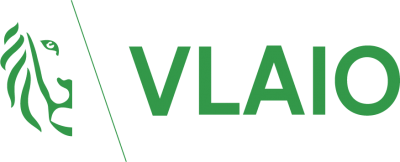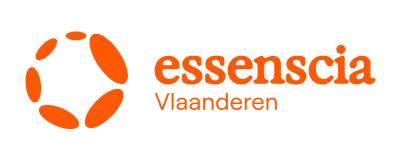Topics
We organise our actions in six thematic & strategic agendas:
Strategic Agendas:
Bio-economy
Circular Construction
Chemicals/Plastics
Manufacturing Industry
Food Chain
Water Cycles
Seven leverages provide additional support:
Leverage effects:
Lever Policy Instruments
Lever Circular Procurement
Lever Communication
Lever Innovation & Entrepreneurship
Lever Financing
Lever Jobs & Skills
Lever Research
What, why and how?
Why are we pursuing a circular economy?
Future visions 2050
How do we see our circular future?
About our management
Who steers what at Flanders Circular?
Entusia
The pre-incubator for circular economy in Flanders
Incontinence materials today are mainly disposable products, which has a large impact on waste. Hundreds of thousands of disposable pads and bedpans are thrown away every day after one-time use. However, more sustainable and even reusable alternatives are possible.
Entusia, a company that specialises in comfortable and stylish reusable incontinence materials, wants to work on more sustainable and ecological alternatives through this project. We want to further expand our product range for people with moderate urine loss with two new products: reusable incontinence pads and underwear, and reusable bed underpads. In this way, we want to make our contribution to reducing the amount of incontinence waste.
Specifically, we researched new materials, better anti-bacterial treatments and higher absorbency to extend the life of our new products. These new materials were incorporated into test products by various manufacturers, so that they could be evaluated and adapted where necessary.
EntusiaEntusia
Partners Zorgbedrijf Antwerpen, Universiteit Gent
Sectors
Themes
Organisations
Website
MOST IMPORTANT
RESULTS
- We have found a new supplier for the materials of our absorbent pads. The new material has a longer life span, which results in an economic advantage for the user and in reducing waste.
- We used a new antibacterial treatment for our pads that stays active longer. This also ensures a longer lifespan, so that users only need to use five pads on average every year, instead of six.
- The higher absorbency of our reusable underwear has allowed many users to switch from larger disposable pads to a sustainable alternative. That means 226 kg less residual waste, or over 491 kg less CO2 emissions, per user per year.
- We developed a reusable bedpan that can be washed at least 150 times. This means that a user only needs three reusable underpads a year and saves 182 disposable underpads.
MOST IMPORTANT
LESSONS LEARNED
- A strong communication about all ecological, aesthetic and economical advantages of our products will be of great importance. For example, we can organise information sessions for home care nurses, employees of medical distribution points, etc., so that they can pass on the information to the end users. so that they can pass on the information to the end users.
- Our impact will be greater if we can also convince groups of residential care centres to switch to our products. Building a good business case will be necessary. Once a few residential care homes make the switch, it will be easier for the rest to follow. Of course, this is a long-term process.
- The government can help make reusable incontinence materials the norm, for example by enabling a free test phase of such products for public residential care centres.
WHAT DOES
THE FUTURE HOLD?
Thanks to our research, we were able to gather a lot of useful information about the market. The end users and residential care homes are certainly open to sustainable alternatives. We were able to show them that our products not only respect the dignity and encourage the autonomy of the end users, but also provide an ecological and economic advantage, both in terms of purchase and waste disposal.
The demand for additional products, for example with even higher absorbency, bed bases with handles to be used as sliding sheets, underwear for children with urine leakage, etc., shows that there is great interest in these products.
We will also continue to work on making our products even more sustainable. Next year, for example, we want to conduct research into a sustainable alternative for the cotton in our underwear.

















